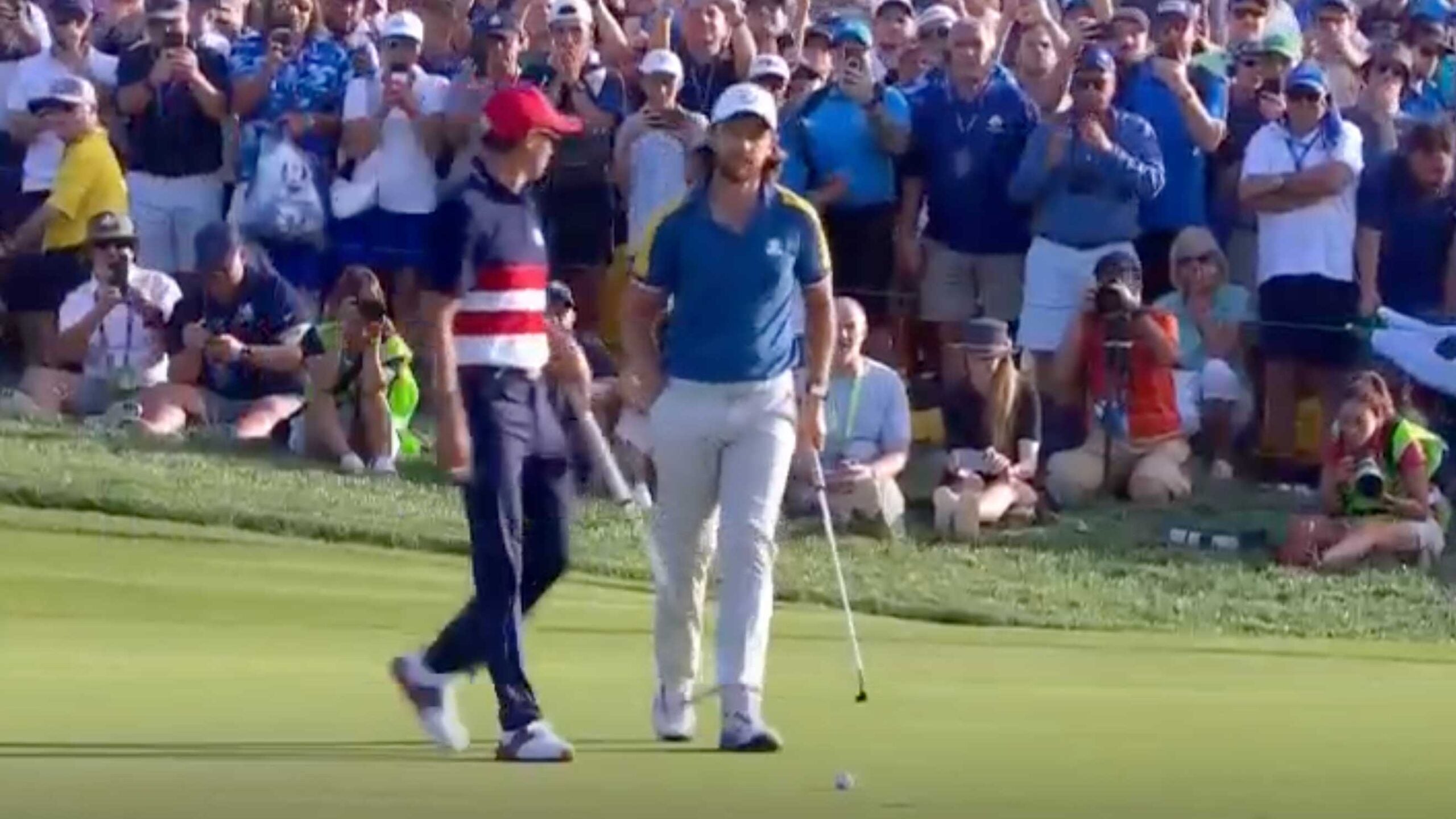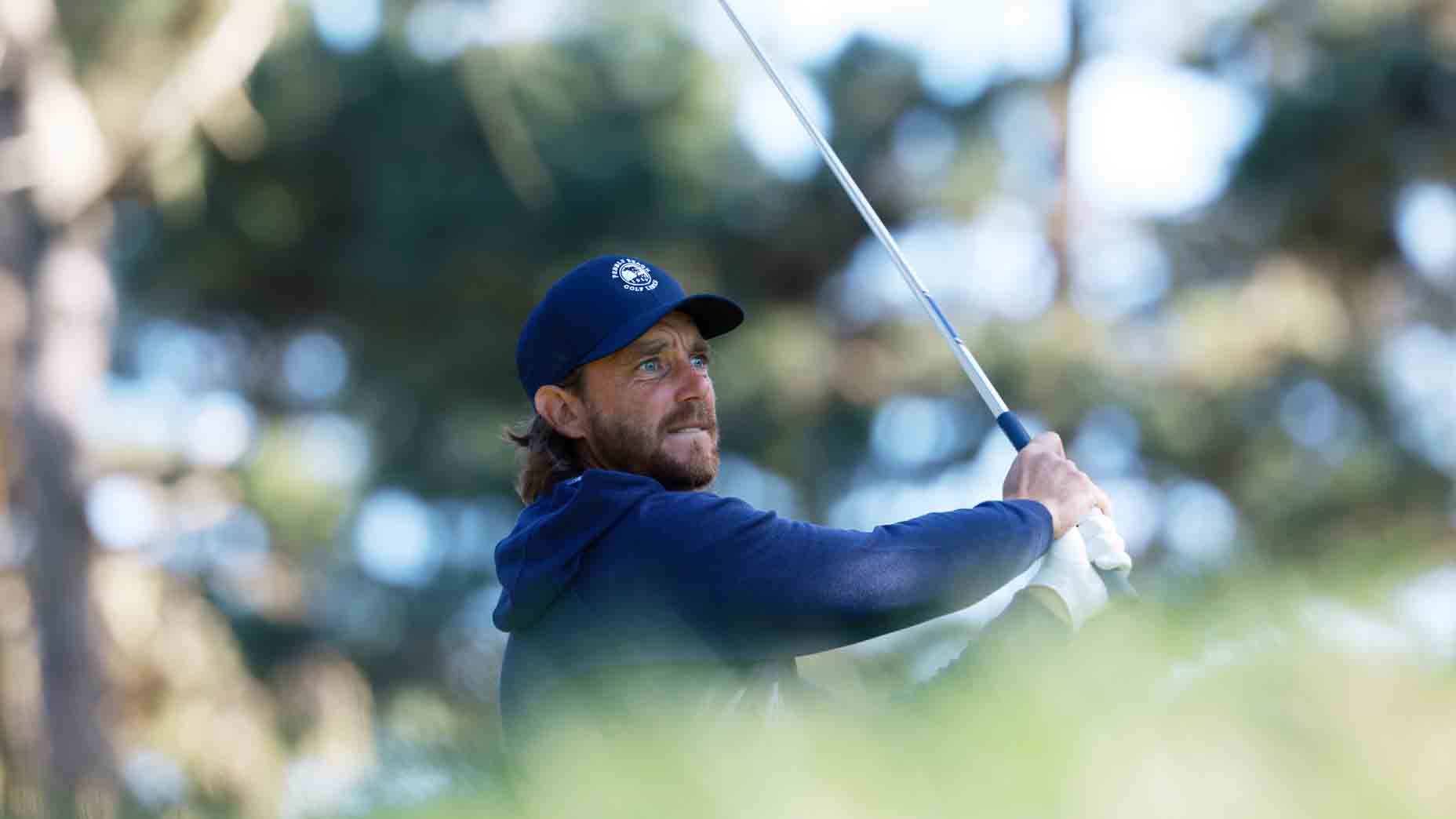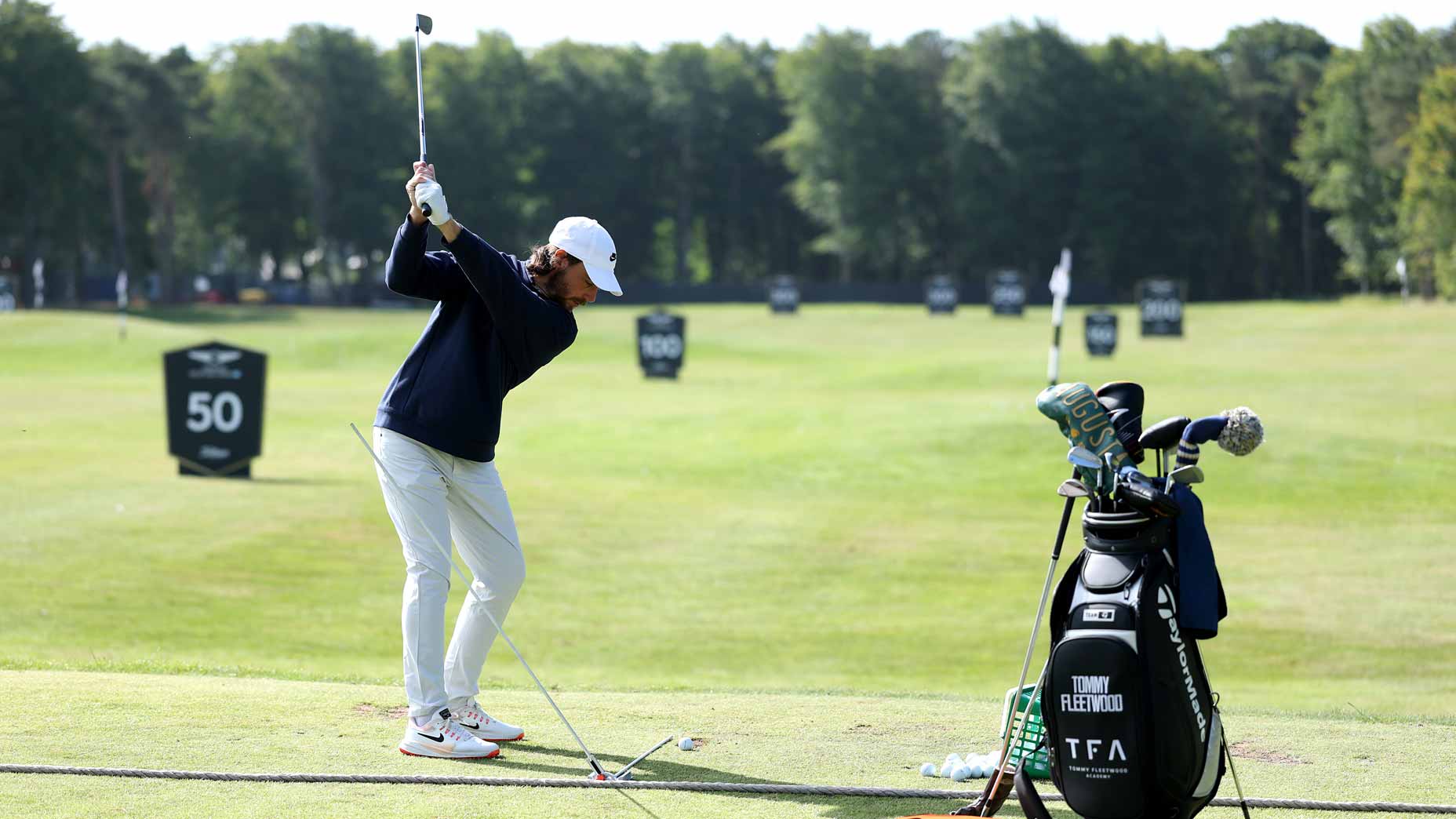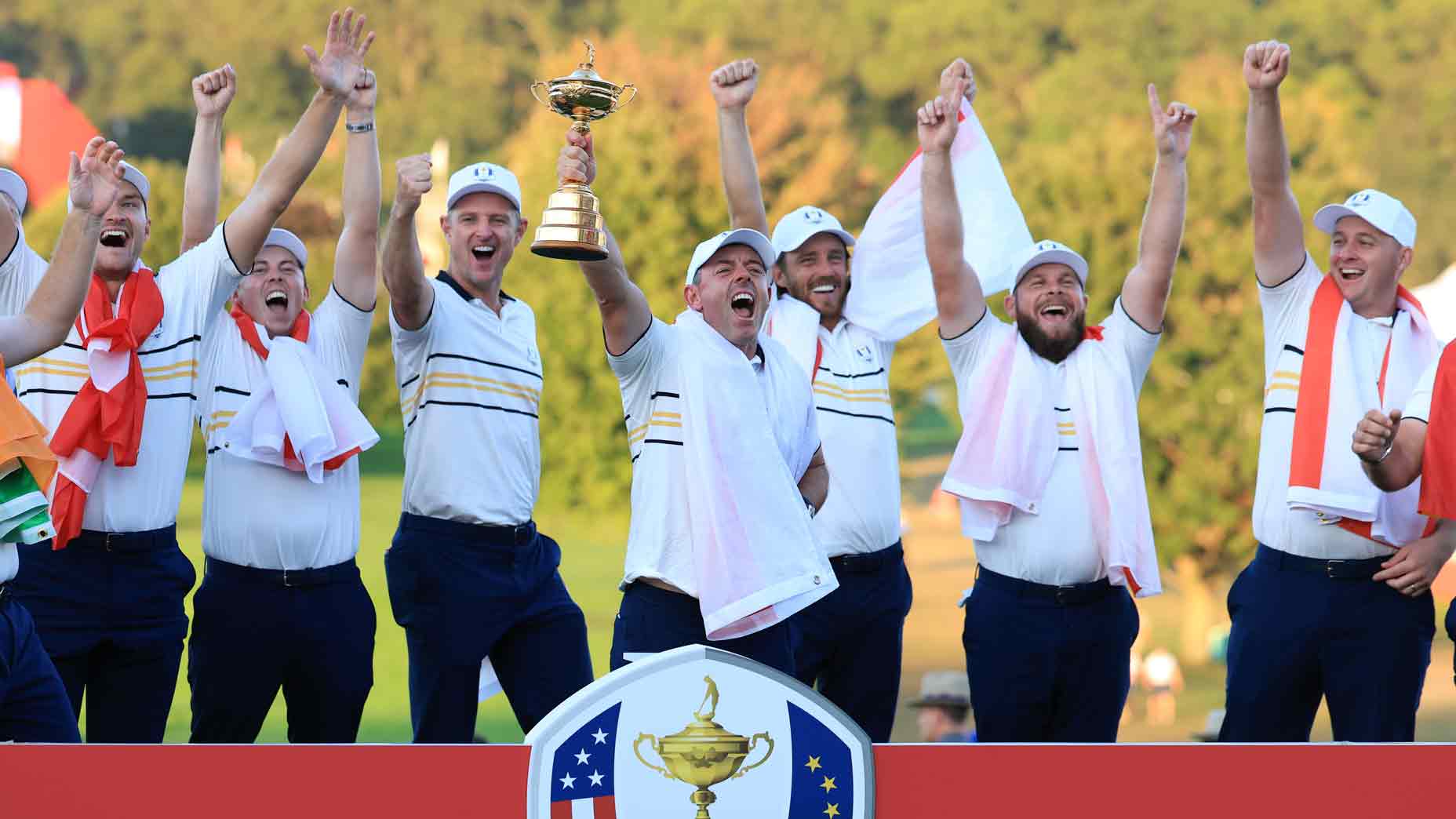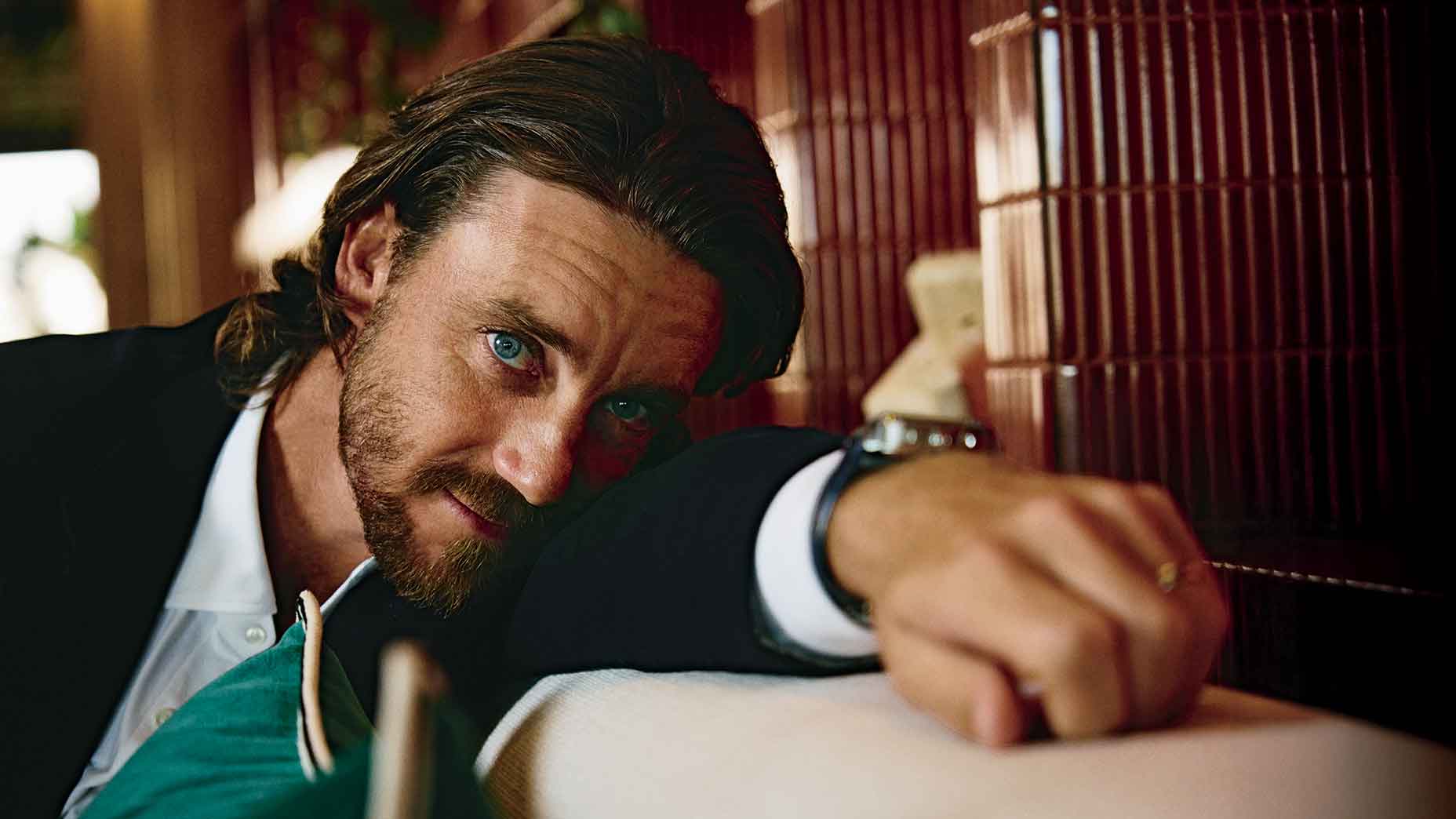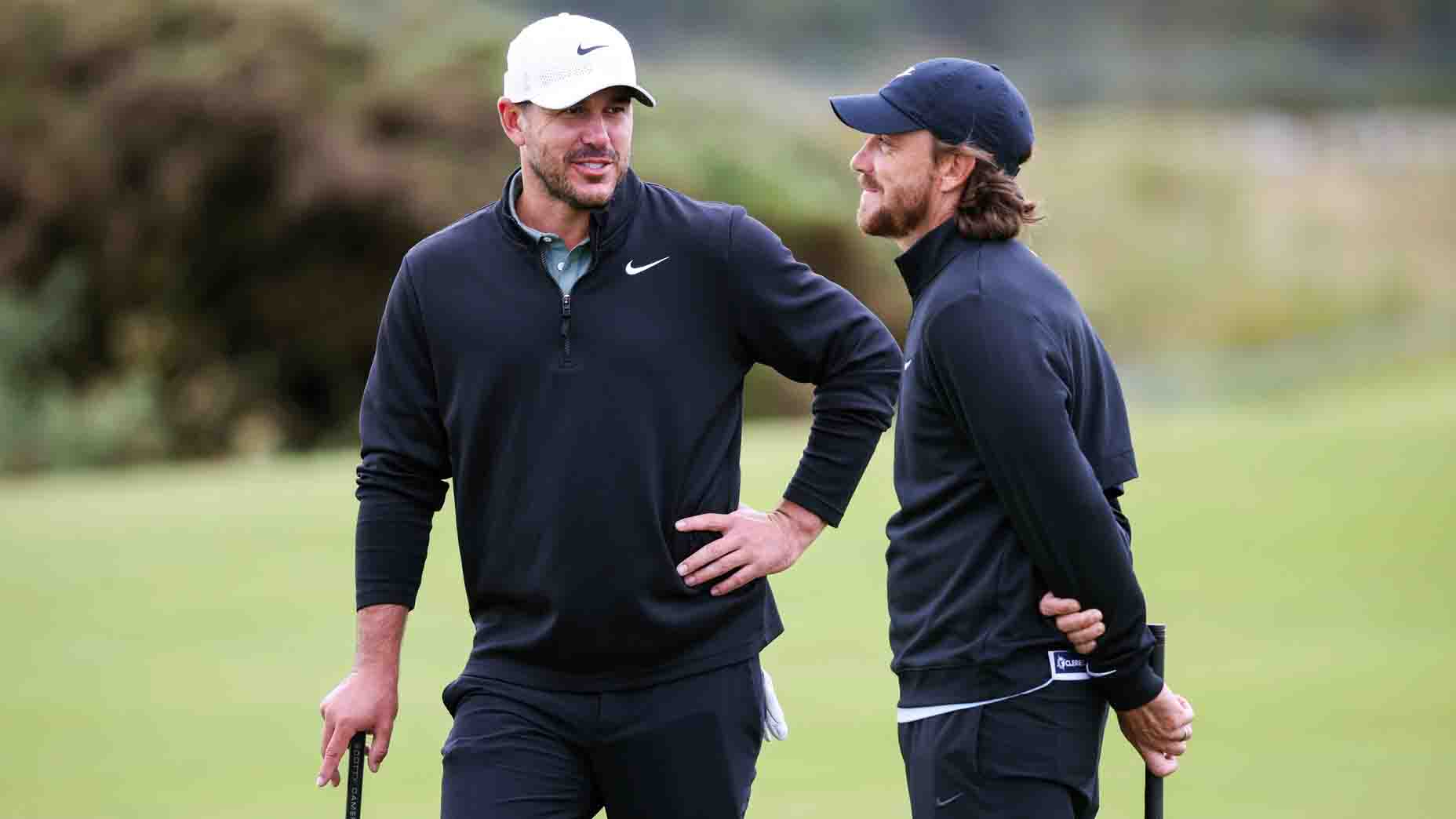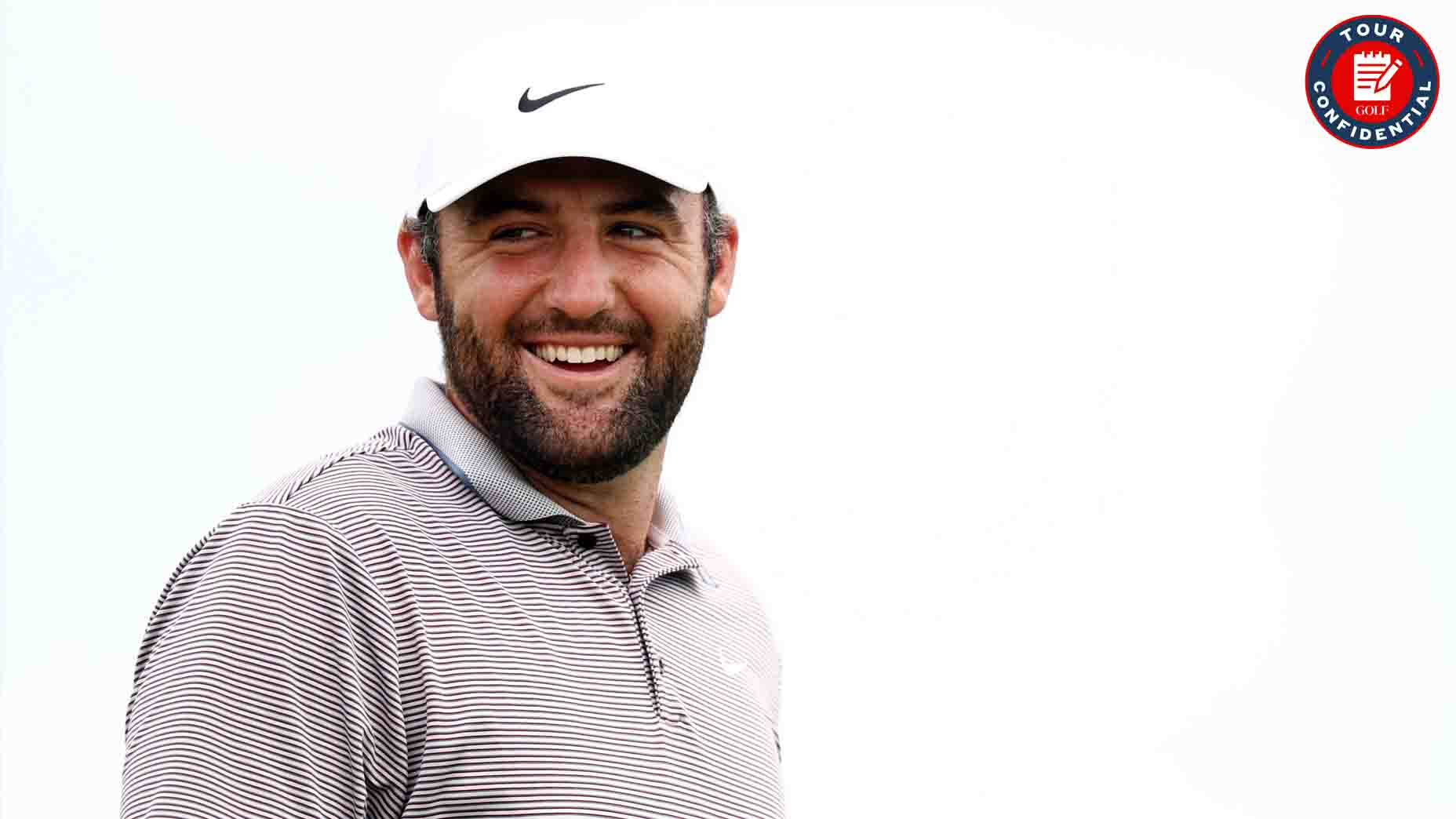Rickie Fowler, one of six captain’s picks on the U.S. Ryder Cup team, had quite a week in the bucolic Roman countryside, but not for reasons he would have drawn up.
His campaign began in earnest on Friday morning when he and Collin Morikawa suffered a 2-and-1 loss to the strapping European duo of Shane Lowry and Sepp Straka. The U.S. was blanked 4-0 in that session — a harbinger of more beatdowns to come — but those weren’t the only aches and pains the Americans were feeling.
According to U.S. captain Zach Johnson, “a bug” had infected members of the U.S. team. “We’re just fighting things, I mean, internally,” Johnson said Friday evening. “It’s kind of passed around a little bit, caddies, players.” He added: “We have got some congestion and some just signs of things that are unfortunate. It’s one of those where sometimes the energy is probably a little low.”
Among the harder hit Americans, it appeared, was Fowler. Golf Channel reported that Fowler had a sinus infection and rumors flew around the press tent about other afflictions that might be dogging the six-time Tour winner. When Johnson was asked Saturday afternoon whether he sat Fowler in the morning foursomes because Fowler was ailing, Johnson said: “I’m not going to get specific on individual guys. I don’t think that’s fair.”
Johnson also benched Fowler in the Saturday-afternoon four-balls, meaning Fowler would just play two matches in this Ryder Cup: in Thursday foursomes and Sunday singles. Johnson stressed that Fowler’s light schedule was not health-related, it was strategic. “Our matchups felt it was best to go this direction,” the captain said Saturday evening, with his team in a five-point hole. “Rickie is the consummate professional and team player. We had an embrace that I’ll never forget and a smile afterward. … Knowing him, [not playing] is probably motivational.”
Whatever his condition, Fowler wasn’t holed up Saturday. He was out and about at Marco Simone, working on his stroke on the practice green and signing autographs. When Patrick Cantlay made a clutch match-winning birdie on 18 to give the U.S. some glimmer of hope, Fowler was cheering along greenside.
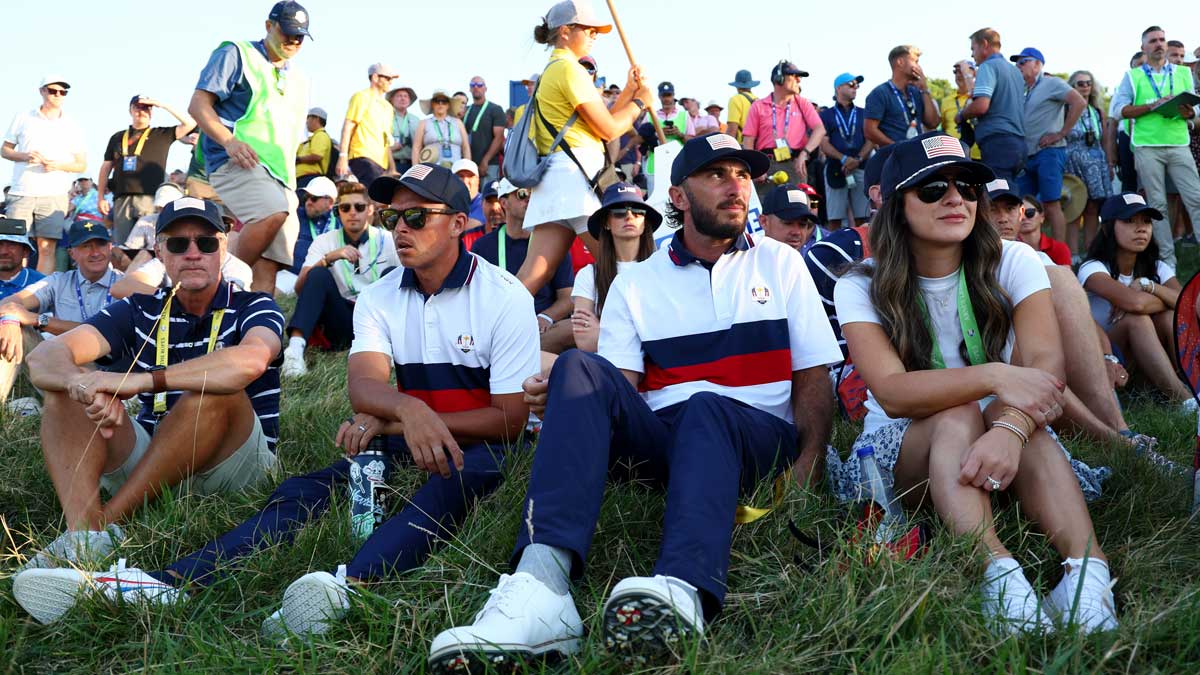
When Sunday dawned, with the U.S. needing a historic singles charge to retain the Cup, Fowler had a big task on his to-do list: try to knock off scrappy Tommy Fleetwood, who was 2-1 on the week to that point and 6-3-2 in Ryder Cups overall. Fleetwood drew first blood in what would turn into a seesaw battle, with a birdie at the par-4 2nd, which Fowler countered with a stuffed tee shot at the par-3 4th that tied the match. Fleetwood birdied 7; Fowler birdied 8. Still tied.
Then Fleetwood made a move, winning holes 9, 10 and 12 with Fowler winning just one hole in that stretch. When they arrived at the par-4 14th, Fleetwood was 2 up. But Fowler wasn’t ready to pack it in. He knocked his approach on the par-4 to 16 feet and jarred his birdie putt to cut Fleetwood’s lead to one.
The drivable par-4 16th, with water guarding the right side of the green, produced fireworks all week at Marco Simone; Fleetwood and Fowler’s tee shots were no exception. But first some context: With Europe needing just one more half-point to secure the Cup, Fowler and the three other remaining U.S. players still on the course had no margin for error. They needed to win out, meaning Fowler needed to get back two holes from Fleetwood with three to play.
Fowler stepped in first with 303 yards between him and the hole and…not good. His drive started right and stayed right, leaking toward the pond. Never had a chance. “Rickie let me off,” Fleetwood said later. “You never really want to see someone hit in the water, so I was not particularly pleased about that.”
As Fowler’s ball gurgled and disappeared, you couldn’t have blamed Fleetwood for playing it safe with his own tee shot and clubbing down. Instead, he grabbed driver and hit the blast of the week: a frozen rope that settled on the middle-back of the green and left him just 20 feet for eagle. “There’s no point in me bailing out with the tee shot there, he could still make 4, and he probably was still going to make 4,” Fleetwood said. “I was just very happy to sort of tee the driver down. I was playing very, very well, put a swing on it and it set off straight and it wasn’t moving.”
Fleetwood was right about Fowler.
After taking a drop, Fowler spun a wedge to 6 feet, setting up a likely par, meaning Fleetwood would need to two-putt to win the hole and guarantee Europe the half-point it needed to clinch the Cup. On a line sloping away from him, Fleetwood hit a good but not great putt that came up 2 feet 8 inches short.
As Fleetwood approached his ball to mark it, he and Fowler exchanged a few words.
The American had conceded defeat.
Fleetwood picked up his ball then threw his arms skyward as the crowd roared. With Fleetwood dormie with two to play, his and Fowler’s match had not been decided (Fleetwood would secure a win on 17, where he stuffed his tee shot to within 3 feet), but the Ryder Cup was over. The prize was Europe’s again.
There are at least two ways to assess Fowler’s gesture: (1) It was the honorable and sporting thing to do; Fleetwood was highly unlikely to miss a putt inside three feet, or (2) Rick, come on, man! Yeah, it was close but nerves make golfers do funny things. For the Ryder Cup-clinching point, you gotta make Tommy Lad earn it!”
Brad Faxon, a two-time Ryder Cupper on the call for NBC, was squarely in the second camp.
“That will not be conceded,” he said incorrectly. “No chance.”
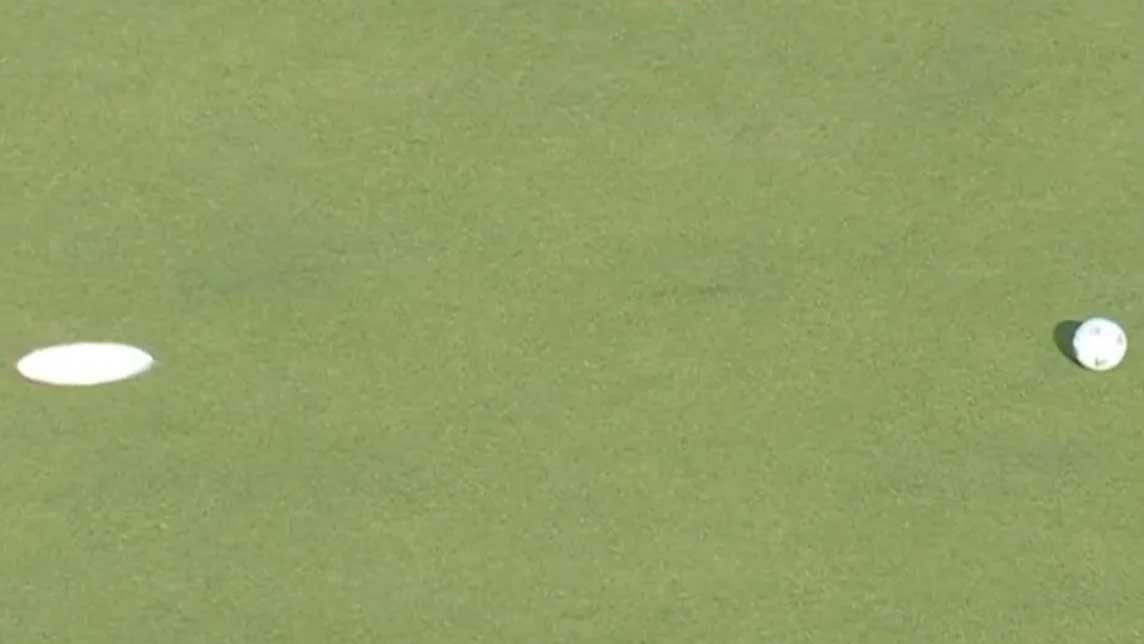
The sequence called to mind another act of sportsmanship: when Jack Nicklaus conceded a two-footer to Tony Jacklin at the 1969 Ryder Cup, which resulted in the first tie in the event’s history. As Jacklin recalled it, Nicklaus told him, “I don’t believe you would have missed that, but I’d never give you the opportunity in these circumstances.”
Fleetwood also was unlikely to miss his birdie try, but if social media was any indication a cross-section of U.S. golf fans was none too impressed by Fowler’s generosity, given the U.S., in that moment, was in full desperation mode.
Fowler wasn’t asked about the concession after the match, but Fleetwood was, saying simply, “I was quite pleased when he gave me the putt.”
After four years in the wilderness, Fowler had a resurgent 2023, tying for fifth at the U.S. Open and winning the Rocket Mortgage Classic, while racking up 16 other top-25 finishes. It might feel like just yesterday that he was a motocross-loving rookie with floppy hair and orange hats, but this week marked Fowler’s fifth Ryder Cup appearance. At 34, he was the second-oldest member of the team behind Brian Harman
It wasn’t all that long that Fowler had no visions of being in Rome — “Just to be on this team was kind of very distant on the radar a year ago, where I had been the last few years,” he said Sunday — but when he did earn a pick, surely he didn’t envision the week playing out like this. What U.S. team member would have?
“Bummed that the game didn’t exactly travel this week and struggled a bit the first day and kind of just never felt that comfortable,” he said. “Fought today, and I kept hanging around and tried to keep pushing. But ultimately a couple swings on my end that cost me, and Tommy played some pretty solid golf.”
If Fowler can keep his form and qualify for a sixth Ryder Cup in 2025, he will descend with his teammates on rowdy Bethpage Black for another crack at the Europeans. “It will be significantly different,” Fowler said. “There’s nothing like a New York crowd or a Northeast crowd. It should be very interesting.”
Ryder Cups always are.
